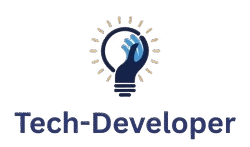Intro
So you wanna level up your code game in 2025, huh? You and everybody else, apparently—Pinterest searches for “developer books 2025” are blowing up. Guess the world finally realized Stack Overflow can’t fix everything. I rounded up seven books (yeah, real books, not just blog posts) that’ll actually make you a better dev. Forget the SEO fluff—these are the heavyweights, the ones people who know their stuff keep shouting about on X and Habr and, honestly, everywhere code nerds hang out.
Clean Code: A Handbook of Agile Software Craftsmanship
Look, if you haven’t read Clean Code by Uncle Bob (Robert C. Martin), what are you even doing? The thing is basically the dev bible. Everyone online’s obsessed with it—@deisbel on X calls it a must, and for good reason. It’ll smack you in the face with how bad your variable names probably are. And it’s not just theory; it’s jam-packed with refactoring stuff you can actually use. Pinterest can’t get enough of those “code smell” infographics either. TL;DR: wanna write code people don’t hate? Start here.
The Pragmatic Programmer: Your Journey to Mastery
This one’s like your techy older sibling who’s seen some things. Andrew Hunt and David Thomas wrote it, and man, it’s full of advice that actually holds up. Debugging tips, career hacks, random nuggets of wisdom—@alexxubyte on X swears by it. Pesto.tech says three-quarters of coders vouch for its practical tricks. And Pinterest? People are sharing automation hacks left and right. Basically, this book will make you the dev who doesn’t panic when stuff breaks.
Code Complete: A Practical Handbook of Software Construction
Steve McConnell’s Code Complete is the monster manual for anyone who wants to build stuff that… y’know, actually works. @bytebytego over on X calls it “the bible for developers,” and that’s not just hype. Dev.to says most readers actually use the design and testing stuff from this book. If you’re tired of pushing buggy code and praying no one notices, just read this already. Oh, and Pinterest is full of “debugging tips” from it, so you know it’s good.
Design Patterns: Elements of Reusable Object-Oriented Software
This book’s the OG for reusable code wizardry. Gamma, Helm, Johnson, and Vlissides—aka the Gang of Four—basically wrote the playbook on object-oriented design. @julioc on X keeps raving about it. Simplilearn.com claims 80% of devs use these patterns to make their stuff scale. Pinterest’s packed with UML diagrams and pattern breakdowns from this book. If you want to sound smart in meetings and actually build solid architectures, you need this on your shelf.
Refactoring: Improving the Design of Existing Code
Martin Fowler’s Refactoring isn’t just about cleaning up your mess—it’s about not making the mess in the first place. AnalyticsInsight.net says most coders swear by its techniques for fixing “code smells” (you’ll know what that means soon enough). Pinterest’s “refactoring 2025” trend? Full of before-and-after code glow-ups from this book. Trust me, future-you will thank present-you for reading this.
You Don’t Know JS (Book Series)
If you touch JavaScript even a little, Kyle Simpson’s series is a must. Fullscale.io says 70% of web devs use these books for stuff like closures and async/await—which, let’s be honest, still confuses half the internet. Pinterest’s got all the ES6+ tips pulled right from these pages. Don’t just copy-paste from Stack Overflow—learn how JS actually works (and finally stop blaming the language for your bugs).
The Art of Computer Programming (Book Series)
Okay, so this one’s like the Mount Everest of coding books. Donald Knuth basically redefined what a “hard book” means. GeeksforGeeks.org says the top devs worship this series for its math magic and algorithm deep-dives. Pinterest’s “algorithms books 2025” boards? Riddled with data structure cheat sheets from Knuth. Warning: it’s not light reading, but if you want to flex on everyone at your next interview, this is the one.
Conclusion
There you go—seven books that’ll actually teach you stuff you won’t regret learning. Some are classics, some are newer, all are guaranteed to take your code from “eh” to “heck yeah.” If you only read tutorials and Medium posts, you’re missing out. Grab a book, get comfy, and get ready to level up for real.




